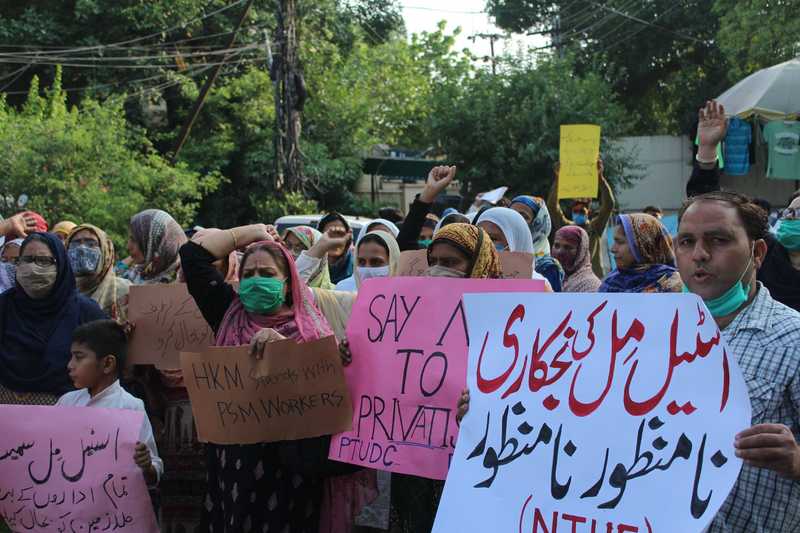
At the second meeting of the Communist International (Comintern) at Petrograd in 1920, there was considerable debate on the “colonial question” and the broader implications of imperialism for communist politics. This meeting took place right after the planetary devastation of the First World War, the failure of the Spartacus Uprising in Germany and the docility of the trade union movement in Western Europe. The newly formed and increasingly isolated Soviet Union faced imperialist aggression, providing impetus to its search for allies in the non-European world. In this context, Lenin presented his “Thesis on the Colonial Question”, furthering his analysis of imperialism by seeking active participation from the colonial world.
M.N. Roy, an anti-colonial fighter from Colonial India who was present at the meeting as a delegate from the Mexican Communist Party, criticized the hitherto neglect of anti-colonial struggles by the communist movement. In fact, he went on to suggest that the “super-profits” acquired from the colonies induced passivity in the metropolitan working classes, and emphasized the growing importance of the anti-colonial struggle for revolutionary movements. Roy’s words proved to be prophetic, as the 20th century witnessed unprecedented anti-imperialist upheavals, decentering Marxism from a European theory to one of the most potent political ideas in the colonial world.
As we build a new International to respond to the global crises confronted by humanity, it is pertinent to build upon the central role of the anti-colonial and anti-imperialist struggles in the revolutionary movements of the 20th century. Recently, Mike Davis rightly pointed out the absence of a global strategy from insurgent left-wing movements in the West, an insularity that cannot be justified considering the militant anti-capitalist struggles in the global South. The current pandemic and the looming climate catastrophe teach us how intimately the fate of humanity is tied together, making universal emancipation a necessary condition for sustaining life on the planet.
Recognition of the suffocating impact of imperialism on the global South is not merely a question of ensuring representation. By analyzing the role of imperialism, we are able to grasp the totality of global capitalism in its uneven effects across space. More importantly, this also enables us to develop a nuanced political strategy to unite the global working class against the international bourgeoisie that takes refuge in nationalism, racism and xenophobia in order to divide people. In countries such as Pakistan, this nexus between imperialism and local elites is the starting point for revolutionary politics.
Pakistan and the Shadow of imperialism
The British ruled the subcontinent for almost 200 hundred years, frequently using the coercive apparatuses (military and police) to control internal populations. When Pakistan gained independence in 1947, the post-colonial elites inherited this militarized colonial state apparatus and aligned themselves with the US in its Cold War strategy for the region. In this alliance, the favored partners of the US were Pakistan’s military generals who were easily swayed to rent out the country’s geostrategic location, making Pakistan a frontline state of imperialist interests in the region.
The results of America’s anti-communist strategy were catastrophic for the region and the people of Pakistan. The most notorious example of this alliance is Pakistan’s assistance in the US-sponsored jihad against the communist government in neighboring Afghanistan, which resulted in devastation for Afghans while producing a lethal jihadi infrastructure in the region. This infrastructure was later mobilized to launch the heinous attacks on the twin towers in New York in 2001, resulting in a renewed US-Pakistan alliance under the garb of the “War on Terror”.
Internally for Pakistan, foreign support of the military apparatus has produced a militarized logic of governance in the country. A permanent state of emergency results in regular bouts of US-backed military dictatorship, censorship and the use of violence against dissenters, including the sinister policy of enforced disappearances of political activists. One of the most bizarre legacies of colonial rule is the use of the sedition law against pro-democracy and left-wing activists. Today the postcolonial state continues to view populations as potentially seditious and threatening, revealing how formal independence failed to overcome the legacies of colonialism.
Governed by Debt
Pakistan’s elite-driven and militarized political economy is maintained through debt, which is the principle mechanism through which the global North exercises its hegemony over poor countries. Since the Washington consensus in 1980, international financial institutions have pushed an aggressive neoliberal offensive, leading to widespread privatisation of industries and austerity for the social sector. The result has been an absolute social, economic and environmental catastrophe.
For example, the current prime minister, Imran Khan, famously said while campaigning that he would rather die than beg for money from the IMF. Yet, last year, due to Pakistan’s perennial near financial crisis, the prime minister took a U-turn and wound up courting the IMF, despite knowing what kind of austerity measures awaited the country. In what some refer to as the “IMF’s imperialist takeover”, the most recent round of conditionalities include hikes in taxes on essentials, cutting funding for health, education and environment sectors, as well as the devastating devaluation of the Pakistani rupee, displacing the burden of debt repayment onto ordinary working people.
To add insult to injury, IMF officials were installed in key positions of governance, including the State Bank of Pakistan and the Finance Ministry, leading to further deprioritisation of social spending. Today, military and debt servicing eat up well over half of Pakistan’s budget, leaving little for social services and developmental expenditures. For example, the higher education budget was cut by 40 percent this year, forcing universities to impose fee hikes on students during a pandemic.
More shockingly, with the onset of the coronavirus, the only discussions regarding Pakistan’s health care system involved planning for the privatisation of public sector hospitals. The attacks on the health sector, coupled with the lack of PPE, led to an unprecedented hunger strike by health workers in April this year. Today, with the COVID-19 lockdown lifted and cases spiking across the country, hospitals are over capacity and PPE and ventilators desperately required, revealing the vulnerability of Pakistan’s social infrastructure.
Furthermore, creditors force debtor states such as Pakistan to create “investment friendly” conditions for global investors, leading to the weakening of labor and environmental regulations. The latter not only fuels environmental degradation but also aggravates the already dire situation of public health. According to the WHO, over 40 percent of deaths in Pakistan are due to water-borne diseases, a situation worsened by the lack of checks on industrial waste.
For workers, a precarious economy and the pro-investor policies of the government mean little job security and even less bargaining power, with less than 1 percent of the workforce in Pakistan unionized.
Pandemic and the Need for a New Internationalism
COVID-19 has exacerbated these faultlines, with Pakistan’s garment and textile production plummeting. This sector was responsible for 70 percent of Pakistan’s exports, supplying apparel to popular brands in the US, UK, China, and Germany. The current crisis has pushed millions of workers and peasants into unemployment, many of whom have not even been paid for their work since February or March, turning mass starvation into a palpable reality. As some workers are being called back to work, they are being forced to sign contracts agreeing to work for lower pay than even the insufficient legal minimum wage.
The Haqooq-e-Khalq Movement (People’s Rights Movements) is engaged in the labour relief campaign to support the growing committees of workers across sectors, constructing networks of mutual aid and building alternative forms of social power from below. Yet such efforts here cannot be sustainable so long as extractive policies of foreign governments and the imperatives of global finance determine the agenda for the domestic economy. We need to build a global anti-imperialist politics rooted in networks of solidarity that can confront the power of global capital and allow relative autonomy for governments and communities to plan economic production and distribution.
We see hope in the seeds of internationalism being sowed today under the conditions of the global pandemic, ranging from the coming together of the Progressive International to the deepening networks of workers of the world standing together at such a critical time. The global Green New Deal is an important step towards attaining such a goal, and it must entail the wholesale write-offs of imperialist debt, popular sovereignty against foreign aggression and solidarity with workers and dissidents confronting neo-colonial state institutions.
The construction of a new International is taking place one hundred years after M.N. Roy and other anti-colonial fighters emphasized the centrality of anti-imperialist struggles to an emancipatory political project. Today, our analysis must acknowledge both the history of revolutionary movements in the 20th century and the growing integration of global capitalism. To overthrow capitalism and to ensure a sustainable planet, we need to build an integrated strategy that overcomes the manufactured rivalries between popular classes from the global North and the global South. Only anti-imperialist internationalism can forge a new will of the working people against the suffocating and violent hold of capitalism over our lives and open prospects of a common humanity built out of shared struggle and solidarity.
Our task today is to link together disparate indices of pain, suffering and revolt into a common, transnational political project. This necessary alliance is our only path to exorcising the ghosts of colonial violence and opening a new, more just chapter in human history.






